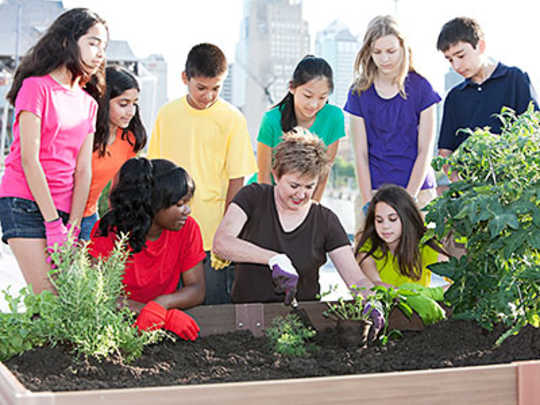
Kids are less likely to have concentration problems and behavioral issues if their parents make a greater effort to engage with their schooling earlier in the year, according to new research.
Parent involvement and support can be beneficial for students of all ages, but the new research shows that family-school involvement has specific perks for young students.
After surveying more than 3,170 students and 200 teachers, researchers at the University of Missouri found that families are less engaged with their child’s schooling in middle school than they are when their child is in elementary school.
“…when parents are more involved at school, the benefits to their child grow over time.”
“In addition to being less likely to have emotional or behavioral issues in class, we also found that students with engaged parents ended the year with better social skills and were able to focus on tasks easier,” says Tyler Smith, a senior research associate in the College of Education at the University of Missouri. “This means that when parents are more involved at school, the benefits to their child grow over time.”
The researchers says that family-school engagement often drops from elementary to middle school for several reasons, including a change in student-teacher ratio and a desire to respect their child’s growing sense of independence.
“Keeping in contact with multiple teachers can be more challenging for parents with children in middle school, but our study shows evidence that parents and teachers should continue to make an effort to connect,” says coauthor Keith Herman, a professor in the College of Education. “There are many options for parents to become more involved at both levels without feeling intrusive.”
Herman suggests that parents can explore getting involved with their child’s schooling in a variety of ways. Options outside of the home include attending school functions, volunteering at events, and joining parent groups. However, parents and family members can also take a more active role by helping with homework and keeping in touch with the child’s teacher(s).
Smith adds that teachers can also do their part in encouraging families to get more involved by providing opportunities for parents to connect with them.
“Teachers have a lot on their hands, obviously, but even small efforts to help build better family-teacher relationships can have big payoffs for everyone involved,” Smith says. “Teachers might consider inviting parents to special events or giving students assignments that involve their parents so that the students can help begin to build that relationship naturally.”
About the Authors
The research appears in School Psychology. Funding for the research came from the United States Department of Education and the Institute of Education Sciences.
Source: University of Missouri

Related Books:
Here are 5 non-fiction books on parenting that are currently Best Sellers on Amazon.com:The Whole-Brain Child: 12 Revolutionary Strategies to Nurture Your Child's Developing Mind
by Daniel J. Siegel and Tina Payne Bryson
This book provides practical strategies for parents to help their children develop emotional intelligence, self-regulation, and resilience using insights from neuroscience.
Click for more info or to order
No-Drama Discipline: The Whole-Brain Way to Calm the Chaos and Nurture Your Child's Developing Mind
by Daniel J. Siegel and Tina Payne Bryson
The authors of The Whole-Brain Child offer guidance for parents to discipline their children in a way that promotes emotional regulation, problem-solving, and empathy.
Click for more info or to order
How to Talk So Kids Will Listen & Listen So Kids Will Talk
by Adele Faber and Elaine Mazlish
This classic book provides practical communication techniques for parents to connect with their children and foster cooperation and respect.
Click for more info or to order
The Montessori Toddler: A Parent's Guide to Raising a Curious and Responsible Human Being
by Simone Davies
This guide offers insights and strategies for parents to implement Montessori principles at home and foster their toddler's natural curiosity, independence, and love of learning.
Click for more info or to order
Peaceful Parent, Happy Kids: How to Stop Yelling and Start Connecting
by Dr. Laura Markham
This book offers practical guidance for parents to shift their mindset and communication style to foster connection, empathy, and cooperation with their children.

























